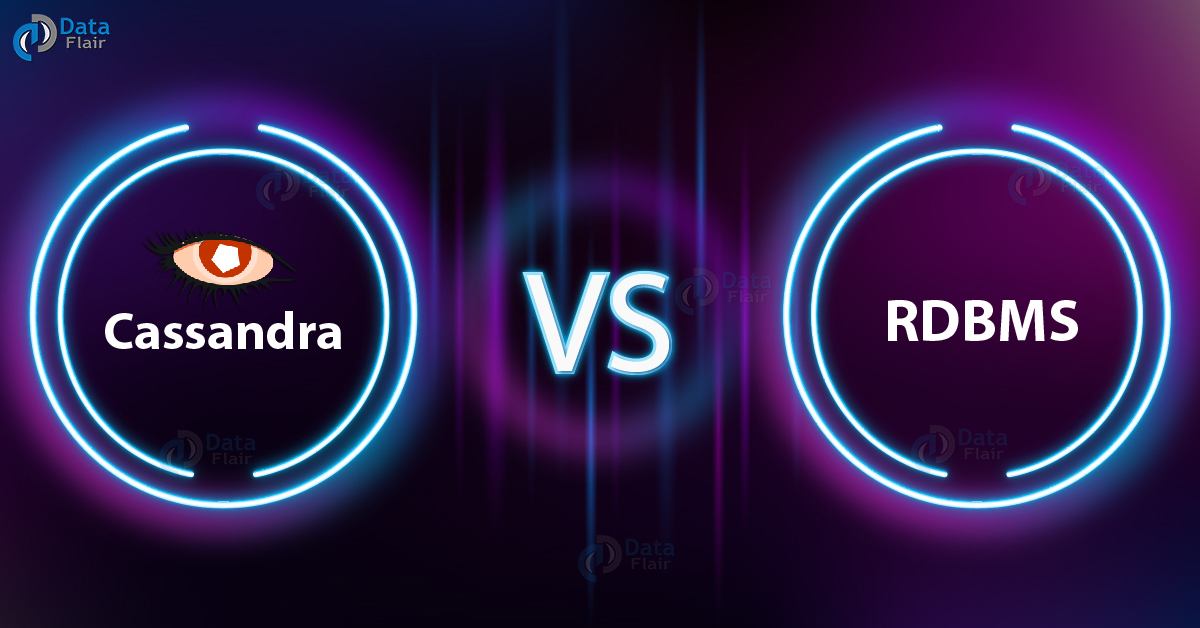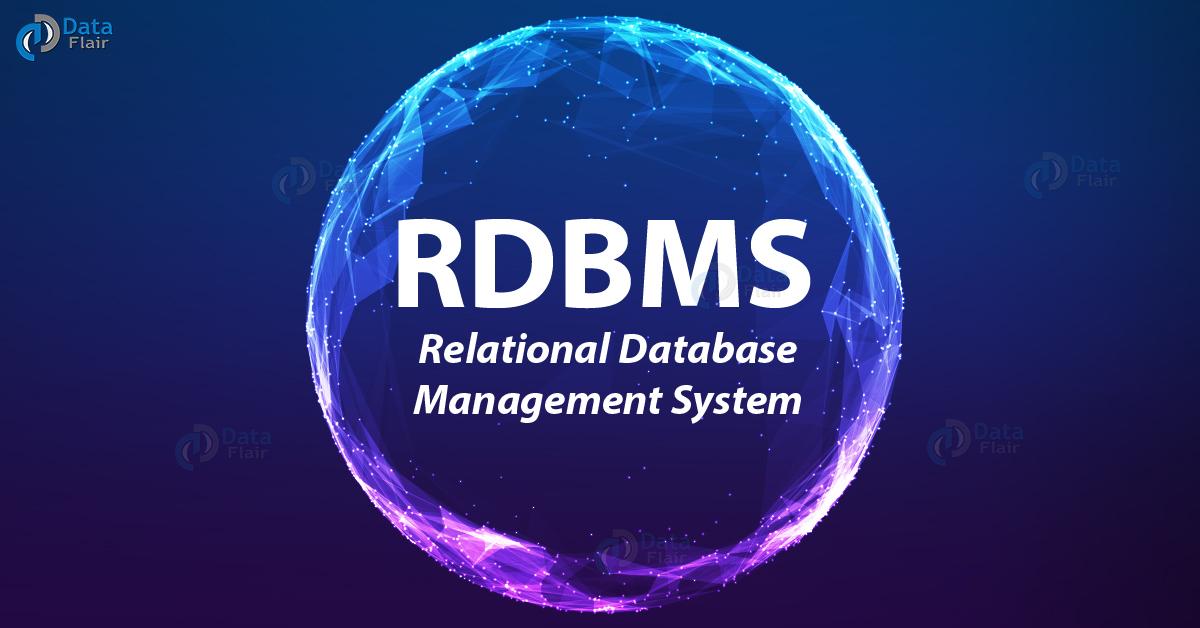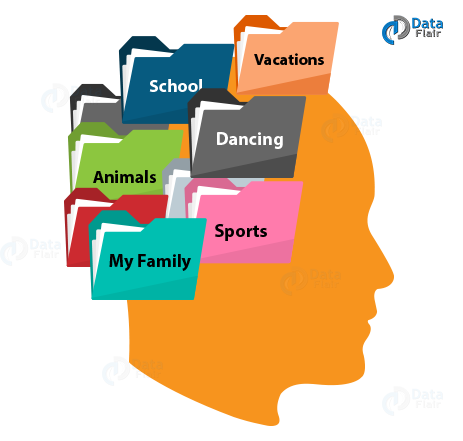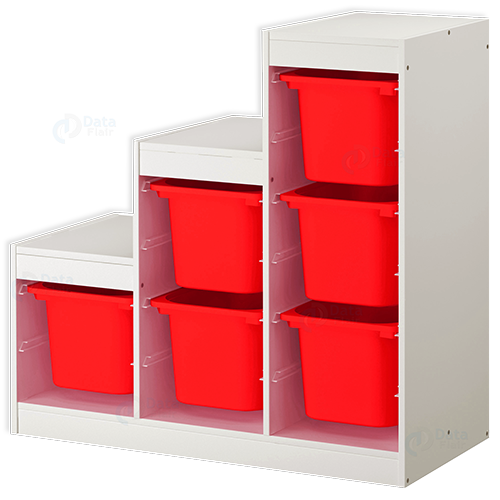Cassandra vs RDBMS | Learn NoSQL and Relational Database
FREE Online Courses: Your Passport to Excellence - Start Now
1. Cassandra vs RDBMS
In our previous article of Apache Cassandra tutorial, we have learned much about Cassandra. Now, in this article, we will study Cassandra vs RDBMS.
Moreover, we will study the NoSQL Database and Relational Database in detail. Along with this, we will see some major points for a difference between Cassandra and RDBMS.
So, let’s begin Cassandra vs RDBMS.
Do you know about Cassandra User-Defined Type
2. What is NoSQL Database?
NoSQL or ‘Not only SQL’ is a non-relational database. It supports a very simple query language with no fixed schema. This database covers the storage of non-related data. This kind of database has a decentralized structure.
It can handle data in a very high volume an also at high velocity. NoSQL database is deployed in a horizontal fashion. Examples of NoSQL database are Cassandra, HBase, Couchbase, Cosmos DB etc.
5 Important Cassandra Features That You Must know.
3. What is a Relational Database?
Relational Database basically uses SQL or Structured Query Language. This database supports a powerful query language with a fixed schema. It covers the storage of related data.
This database has a centralized structure and is deployed vertically. As compared to the NoSQL database, it handles a moderate volume of data at low velocity. Examples are RDBMS, MongoDB etc.
4. Cassandra vs RDBMS
Let’s discuss some major factors of difference between Cassandra vs RDBMS.
a. Data
Cassandra deals with unstructured data. Basically, it handles data of all sorts at the same time.
It can handle data that include sound, video or image as well. Since Cassandra is NoSQL DB it can deal with a huge volume of data.
It deals with structured data. RDMS covers a set kind of data. It handles data that include text or characters or numbers. It deals with a moderate volume of data at a particular instant.
Learn Cassandra Curd Operation – Create, Update, Read & Delete
b. Schema
Schema Design basically covers the storage technique and design of the database.
Since Cassandra is highly scalable that is why it has a flexible schema. It is basically referred to as schema-less.
RDBMS, on the other hand, has a fixed schema. This generally means that there are limitations in the storage of database.
How much you know about Cassandra
c. Table
In Cassandra, Table is a storage unit that is basically a list of nested key-value pairs. Its dimension is usually defined as Row x Column Key x Column Value. This table or column family are a part of the keyspace.
The row in the table is a unit of replication for the nodes. The column here is the storage unit. The table is a collection data type. This can be classified as a list, map or a set.
In RDBMS, a Table is a storage unit which is an array of arrays. Its dimension is usually defined as Row x Column. These tables are entities of the database in itself. In the table, a row is an individual record and column represents the attributes of a relation.
Cassandra Applications | Why Cassandra Is So Popular?
d. Storage
Cassandra handles a high storage. The keyspace in Cassandra is the outermost storage unit. This keyspace contains data that is responsible for an application. In Cassandra, the data transfer from or to the storage is pretty fast. This distribution of data is automatic in Cassandra Database.
RDBMS handles a moderate storage. The database itself is the outermost storage area in RDBMS. The database contains data corresponding to an application. As compared to Cassandra RDBMS is little slow when it comes to storage or data transfer. The distribution of data is manual in RDBMS.
So, this was all about Cassandra vs RDBMS. Hope you like the explanation.
Let’s discuss HBase vs Cassandra – Major Difference & Similarities in 2018
5. Conclusion
Hence, we went through a couple of difference between Cassandra vs RDBMS. Along with this, we also discussed the NoSQL Database and Relational Database. By this, we come to an end of the Apache Cassandra Tutorial. Furthermore, if you have any query, feel free to ask in the comment section.
See also –
Cassandra vs Hadoop
For reference-
Cassandra
RDBMS
Your opinion matters
Please write your valuable feedback about DataFlair on Google






Hi Team,
Good Work. But one quesiton, is MongoDB RDBMS ? I think it is a NoSQL DB. Please explain.
Thank you,